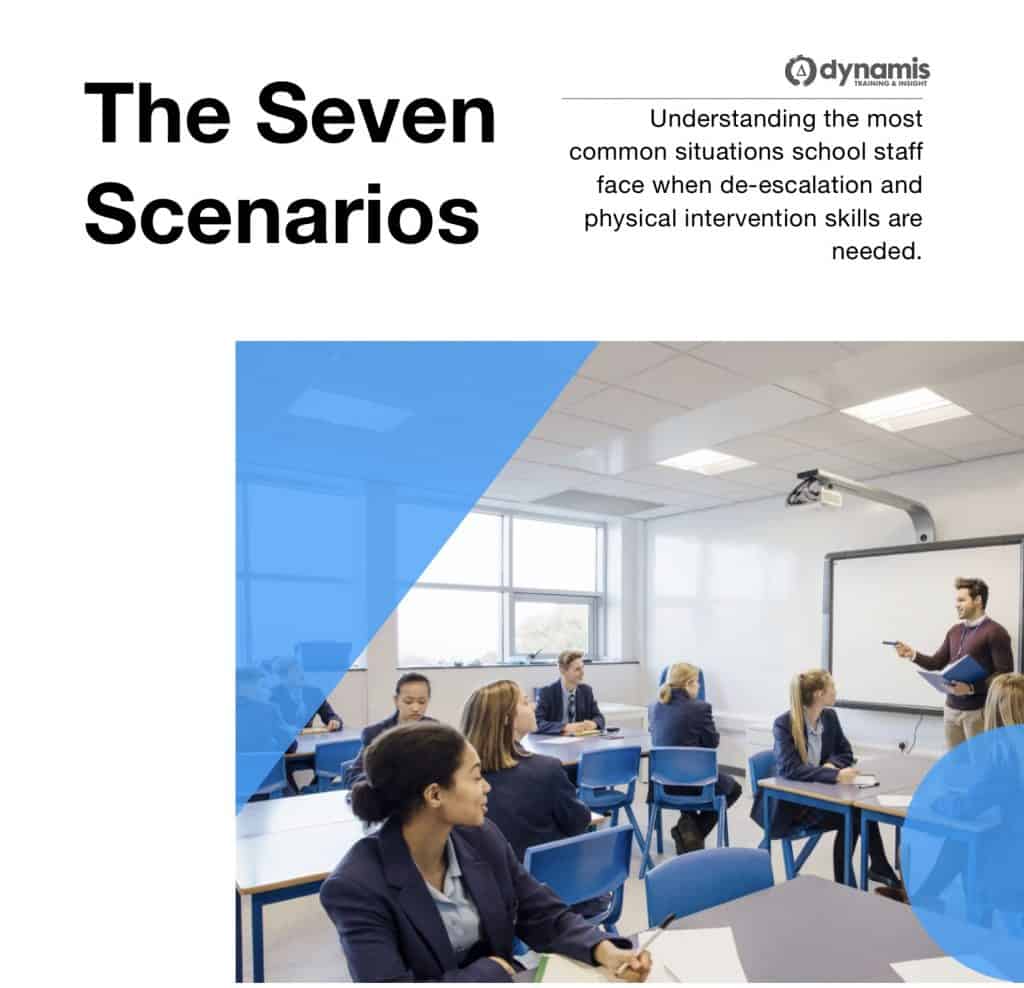Behaviour Management:
Attitudes and Skills Training for Safer Schools
Values and Verbal Skills for Whole-School Safety and Learning
This is our Behaviour Management course for schools. We train a group of your staff to establish the attitudes and verbal skills required to create an environment of collaborative behaviour management.
WHAT: a tailored course for your school team which is based on a method of treating the children and parents at your school with dignity, by showing them respect in every encounter, regardless of the circumstances and gaining the collaboration of all those coming to your school in creating a safe and secure environment (a social contract upheld in each interaction) where every person can work and learn to their potential.
WHEN: on a day of your choice for an INSET or Twilight session (see FORMATS).
WHERE: at your school, in a classroom or other space large enough to carry out the training safely
HOW LONG: Usually three hours, extending if you request additional components.
WHO: Teachers, Learning & Support Assistants, Deputy Heads, Head Teachers, Governors can all benefit from this course. Our typical groups are teams of up to – or multiples of – 12 staff. We can by arrangement train whole-school groups.
WHY: ✓ Matched to your school's needs ✓ Led by Professional Trainers ✓ Values Dignity and Respect ✓ Safeguards Children’s rights during interactions ✓ Offers School Staff Practical Options for dealing with a range of scenarios ✓ Value for your training Investment
Topic 1) The School Environment: Staff will show an understanding of the underlying ethos which must drive behaviour management throughout the school, fostering a common approach to interactions and communications which consistently strengthen core values of “treating each person with dignity by showing them respect” in every encounter.
- Establishing the Social Contract for your School
- “How We Do Business” at this school
- Voluntary Compliance, Cooperation or Collaboration?
- The ‘Gateway Behaviours’ Concept
Topic 2) Understanding Distress: Staff will be able to use a common framework to describe the phases, intensity and risk level of behaviour they are dealing with.
Our aim in this session will be to ensure that all staff attending the session have a framework of understanding in relation to the escalation and de-escalation of behaviour during an incident. We will use the Kaplan/Wheeler curve as a key touchstone upon which we will layer information about:
- Coping Behaviours
- Triggers of Behaviour and Cues
- Escalation-phase characteristics
- Crisis-phase options
- Insights into the Post-Crisis phase
- Post-Crisis recording and reporting
Topic 3) Educator Behaviours : Staff will explore and demonstrate fundamental models of communication which demonstrate the value-base established in the previous session. Once we have decided “How we do business?” there must be specific verbalisation strategies which consistently demonstrate this ethos.
- The Platinum Rule
- The Five Maxims for Effective Communication
- The ‘Showtime’ Concept for Professional Presence
- Having a Pre-Planned, Practiced Response in Mind
Topic 4) Non-Escalation and De-Escalation Tactics: Staff will be able to apply a range of different verbal and non-verbal tactics which are non-physical, to reduce the risk of escalation or to defuse situations which are escalating.
Our aim in this session will be to establish the basic elements of good communication (how to show people respect in every encounter) and then build upon those to enable staff to use The Special Needs Strategies (from our ‘Verbal Defense and Influence’ programme) to manage crisis episodes more effectively. For example:
- Initial Contacts (e.g. when challenging a pupil’s behaviour)
- Dealing with Verbal Abuse or Intimidation
- Managing Resistance to Request
- Listening in order to Lead Behaviour
We offer numerous options for training your staff:
One Full Day: 9am to 3pm on a day when you can release your team...
This option gives your staff the most practice time and question/answer time with the trainers. Assimilation of the material and retention of the attitudes and skills is optimal with this duration. Schools will usually choose this option if they have a well-identified need for training. For dedicated SEN, Learning Disability or EBD settings we can tailor the training, which is recommended for higher-risk care environments.
Half Day or Twilight Session: AM, PM or After-School on ANY date convenient for your team...
Sometimes a school with limited time, or with a low level of behaviour management issues will need our concise half-day course. Half-Day and Twilight sessions can start at 0930 or 1230 or 1530 for example. Flexible to your schedule!
60 min or 90 min Briefing: when time is of the essence and you need basic information quickly...
This is a talk / presentation / briefing on Attitudes and Verbalisation Skills for Whole-School Values, Safety and Learning. It can be useful to establish a baseline of knowledge school-wide or to give the management team essential knowledge.
Blending all of the above options: for the best fit of critical information for the right teams...
Depending on where the risks have been identified, schools will blend all of the above to get the right level of training across all of their staff team. Just get in touch to start a discussion about how we can best meet your needs and your budget.
“Thanks gerard for an enjoyable, informative and useful training course. i now feel that i have some tools that i can use that are effective and safe. The day after the training i was in a situation which required some intervention. I mentally went through the check list (necessary? any other option? last resort?) I was then able to use a technique that gerard had shown us which quickly calmed the person down and resolved the situation. great!”


